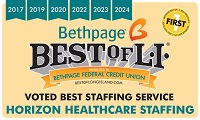How NYC School Nurses Treat Anaphylaxis

What exactly is anaphylaxis? It is a multi system response which manifests itself throughout the body, resulting from a rapid release of inflammatory mediators. Symptoms include difficulty swallowing, difficulty breathing,rapid swelling of tongue, lips, and possible throat closing. It also includes possible wheezing and/ or cough, Itching and/or hives. In some cases the patient can go into a full cardiovascular collapse. The fastest treatment for anaphylaxis is to administer an EpiPen. There are two kinds of EpiPens, the EpiPen Jr. for patients under 55 lbs or the regular EpiPen for patients 55 lbs and over. The EpiPen is an intramuscular injection that provides a single dose of epinephrine to the patient. This injection is administered in the outer thigh. The EpiPen injection can be administered through clothes (even jeans). Once you give the injection, you must hold it for 10 seconds to make sure all the medication is given. After you give the injection, call 911. School nurses in every New York City school are covered by a non-patient specific standing MD order for Epi-Pen administration. This means that a school nurse already has a doctor’s order to give a stock EPiPen to anyone in the school, from the principal to the students.
When nurses see anaphylaxis, no two cases present alike. Onset can be rapid, or symptoms can slowly increase. The faster the epinephrine is administered, the easier everyone can breathe again (pun intended).
* Disclaimer – The content is not intended to be a substitute for professional medical advice, diagnosis, or treatment. Always seek the advice of your physician or other qualified health provider with any questions you may have regarding a medical condition.


When I was younger I took an epi-pen certification while doing a summer counselor job at a camp. During the training I fell asleep and my “friend” thought it would be “funny” to jam an empty epi-pen into my leg and scream…he was was right. It was hilarious.
When I was a child I was severely allergic to bee stings. I will always be grateful to the school nurse who was able to notice and treat my bee sting on the playground. If it wasn’t for her I might not be writing this blog I used to keep an epipen at the nurses office. Thank god my bee sting reactions have lessened over the years, but these things are common. Education is essential to avoid a tradjedy.
Nice article Maria. The nice weather may be not so nice for those who suffer from allergies. EpiPens are very important and are lifesavers for many as stated. When I run the Vaccine Programs in the summer, I give all of my Nurse’s EpiPens in their emergency kits; just in case someone the are administrating the vaccine to has an allergenic reaction. Good thing up to this date no one has had to administer epinephrine after a shot !
There are three ways that nurses can administer Epi.
The Epi-Pen, the Auvi Q, and with a vial and syringe. Obviously the first two are preferred because they are safest.